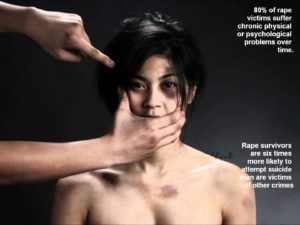
College Sexual Violence Video Project
The National Sexual Violence Resource Center has designated April as National Sexual Assault Awareness month in recognition of the widespread prevalence of sexual assault nationwide. Sexual assault, including childhood sexual abuse, is an underreported crime. What often is overlooked, according to Melissa Reilly, Director of the Victim Intervention Program (VIP)/ Rape Crisis Center at Parkland Health & Hospital System, is how extensively sexual assault impacts a person’s physical, emotional and social functioning.
“Sexual violence—including child sexual abuse—crosses all ages, genders, races, ethnicities, and economic backgrounds. Children are not immune from this type of assault,” Reilly said. “Sexual assault continues to be a severely underreported crime. It’s estimated that less than 10 percent of victims report their experience to the police.”
In 2014 in the Lone Star State, more than 413,000 sexual assault crimes were reported. “In Texas, one in four girls and one in six boys will be sexually abused before their 18th birthday,” Reilly stated.
Every person who walks in the door at Parkland is screened for abuse, whether it’s physical, sexual or emotional. Parkland’s VIP/Rape Crisis Center offers support to children, teens, adults and families by providing free counseling, 24-hour response for victims seen at Parkland facilities, and help finding emergency shelters, legal assistance and other services. Spanish-speaking staff is available and services in other languages are offered through interpreters.
“At Parkland, we address the medical, social and emotional needs of a sexual assault survivor. This comprehensive approach assists the patient in his/her recovery following the assault,” Reilly said. “After a sexual assault, victims experience different emotions including fear and depression, notice changes in their behaviors and often feel disconnected as they have difficulty trusting others.”
In addition to psychological and social impacts, sexual abuse often leads to medical problems for victims which are often overlooked. A 2015 report titled “Health and Well-Being: Texas Statewide Sexual Assault Prevalence Study” compiled by the University of Texas at Austin found that physical, mental and emotional problems that limit activities are nearly twice as prevalent among sexual assault victims (41.3 percent) than among non-victims (26.5 percent). Sexual assault victims are almost twice as likely as non-victims to suffer from asthma (20.9 percent versus 12.5 percent), frequent headaches (21 percent versus 11 percent), irritable bowel syndrome (9 percent versus 4.2 percent), and chronic pain (20.3 percent versus 9.9 percent).
The study stated the financial impact to the Lone Star State of sexual assault is conservatively estimated at $8 billion annually.
Pediatricians at Parkland also are urging awareness of the importance of vaccination to protect all children, including those who are victims of sexual assault, from the health risks of human papilloma virus (HPV).
Donna Persaud, a Parkland pediatrician, stated, “More than 80 percent of the population will be infected at least once in their lifetime with HPV, the most common sexually transmitted infection (STI). In most cases, HPV goes away on its own and doesn’t lead to health problems, but it can cause cervical and other cancers that are serious health risks.”
In February, the Centers for Disease Control and Prevention (CDC) updated the HPV vaccination schedule, recommending that 9- and 10-year olds receive the HPV vaccine if they have a history of sexual abuse. Previously, the CDC recommended that the vaccine be administered to boys and girls between the ages of 11 to 14.
“HPV vaccines offer the best protection to girls and boys who receive all three vaccine doses,” Dr. Persaud said. “It is most effective when administered to pre-teens to allow time for their bodies to develop an immune response before they are exposed to cancer risks.”
“Educating the community about the prevalence of sexual assault is one way to help prevent it,” Reilly said. “We want individuals, families and the community to know about the resources available to them. The theme of this year’s campaign is ‘Prevention is possible.’ Promoting safe behaviors, healthy relationships and equitable policies will help keep everyone, including children, safer.”
If you or a loved one is in an abusive situation and needs immediate assistance, call the Parkland Rape Crisis Center 24-hour hotline at 214.590.0430. To make an appointment with a counselor or find out more information about Parkland’s services, please call the VIP/Rape Crisis Center at 214.590.2926. To find the Parkland COPC health center nearest you, go to www.parklandhospital.com.




